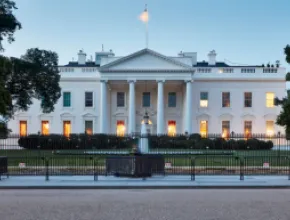After a tumultuous year for most everyone with a stake in the hospitality industry, Destination Marketing Association International (DMAI) thought it was a good time to tag its annual convention with a “Creating Champions for Destinations” theme.
The DMAI 95th Annual Convention in Atlanta, which wrapped July 30, was long on inspiration, featuring an opening address by visually impaired mountain climber Erik Weihenmayer, who has scaled the highest peaks on all seven continents, and an address by hospitality industry leader Roger Dow, president & CEO of U.S. Travel, who detailed the industry’s successful “Meetings Mean Business” pushback against negative government action and media coverage that resulted in the “AIG Effect.”
As with other segments of the hospitality industry, attendees at the convention, primarily comprised of destination management organization (CVB) leaders, needed a reason to cheer for champions, as the economic crises is biting their budgets.
According to figures from DMAI, 83 percent of its members receive 78 percent of their funding through occupancy taxes, and hospitality industry consultancy Smith Travel Research (STR) reported that occupancy rates have settled at an anemic 55.5 percent, and the average daily rate for a hotel room is $96.37, down 2.5 percent from a year ago. The result has been a 14.5 percent decrease in CVB funding in 2009.
While DMAI President & CEO Michael D. Gehrisch said he expects the hospitality industry to stabilize in 2010, he also cited a prediction from STR that the average daily rate would slide to $93 in 2010, another 2.5 percent decrease.
“If we don’t do anything we keep eroding our base,” Gehrisch told attendees gathered for a session aptly named Straight Talk with DMAI. “After the AIG Instance in September, we had a major problem on our hands, and every major politician in Washington was beating up on us.”
According to DMAI, the convention drew a little over 1,000 attendees, which was down 18 percent from its 2008 convention in Las Vegas. The association attributed this primarily to a lower number of guests traveling with participating DMOs rather than a decrease in the number of DMOs attending the convention. DMAI said the event did post a “record year” in terms of exhibits and sponsorships, however, with 27 new exhibitors displaying at the 2009 convention.
During a media roundtable session, DMAI leaders stressed the importance of showing the economic impact—above and beyond the revenue from easily tracked sources such as occupancy taxes--the hospitality industry, and the meetings industry in particular, brings to communities.
“This is the first time that CVBs have been put into a national advocacy role,” Gehrisch said, “[To prove the] value of meetings and why face-to-face and trade shows are important to any association.”
Incoming Chair of the Board of Directors of DMAI Daniel Fenton, CEO of Team San Jose (Calif.), said he will focus on strengthening partnerships between DMOs and groups such as arts organizations, hotel chains and organized labor to elevate the meetings industry’s profile, positioning the association as an industry leader to advocate for members to better position themselves in their communities. Fenton will guide DMAI’s $4 million campaign for the effort.
Fenton stressed that the recent government and media backlash against alleged meetings industry excess was itself excessive.
“If you look at a lot of the meetings that were scrutinized, they were an essential part of business, such as sales incentives,” Fenton said. “Technology will not take the place of a face-to-face encounter, especially for a larger [meeting.]”
Outgoing Chair Maura Allen Gast, executive director of the Irving [Texas] CVB, which relies on the corporate segment for the overwhelming majority of its meetings business, agreed with those who predict that the commercial mortgage market could be the next major stressor on the economy.
“It is absolutely the next shoe to drop,” Gast said. “We’ve got space that is sitting empty. The building market is always exuberant when times are high…but when [major decreases] start showing up in commercial property valuations, it becomes crucial. All of this trickles down to less general funding to provide for general services.”
Gehrisch pointed out that 2009 will have negative revenue growth in the hotel industry, with 2010 expected to follow suit.
“Every five years there’s a disaster, and 2009 happens to be one that we haven’t experienced as deeply before,” he said.
DMAI Foundation Chair Steve Moore, CEO of the Greater Phoenix CVB, shared the panel’s conservative view on the immediate future of the hospitality industry, and pointed to a trend toward drive-to meetings gaining in prominence over the short term.
“I don’t think anyone’s going to have an appetite for additional inventory,” he said. “This is not anything we’re going to fly out of with an L-shaped recovery.
“There’s a lot of built-in protection for drive-in meetings, and you’re seeing meeting planners making decisions to have meetings that are [easy to drive to],” he added. “Yes, we’ll see this downturn last a little longer, but there is a need to connect face to face. We think that absentia will force companies to move on that.”






